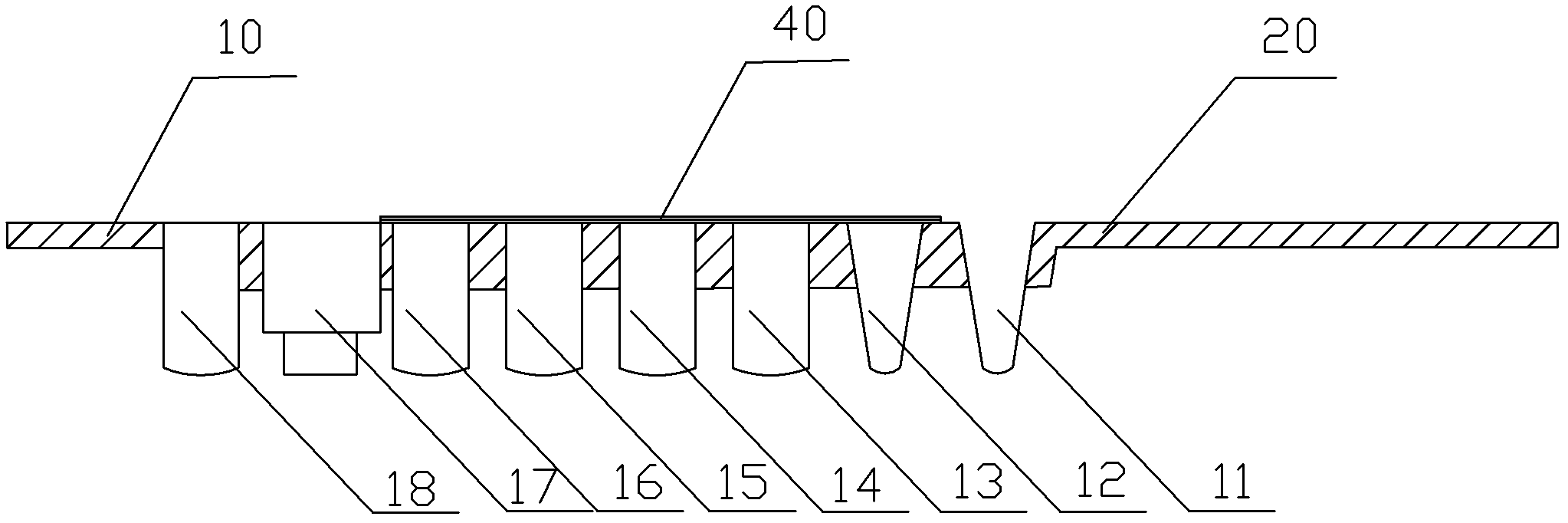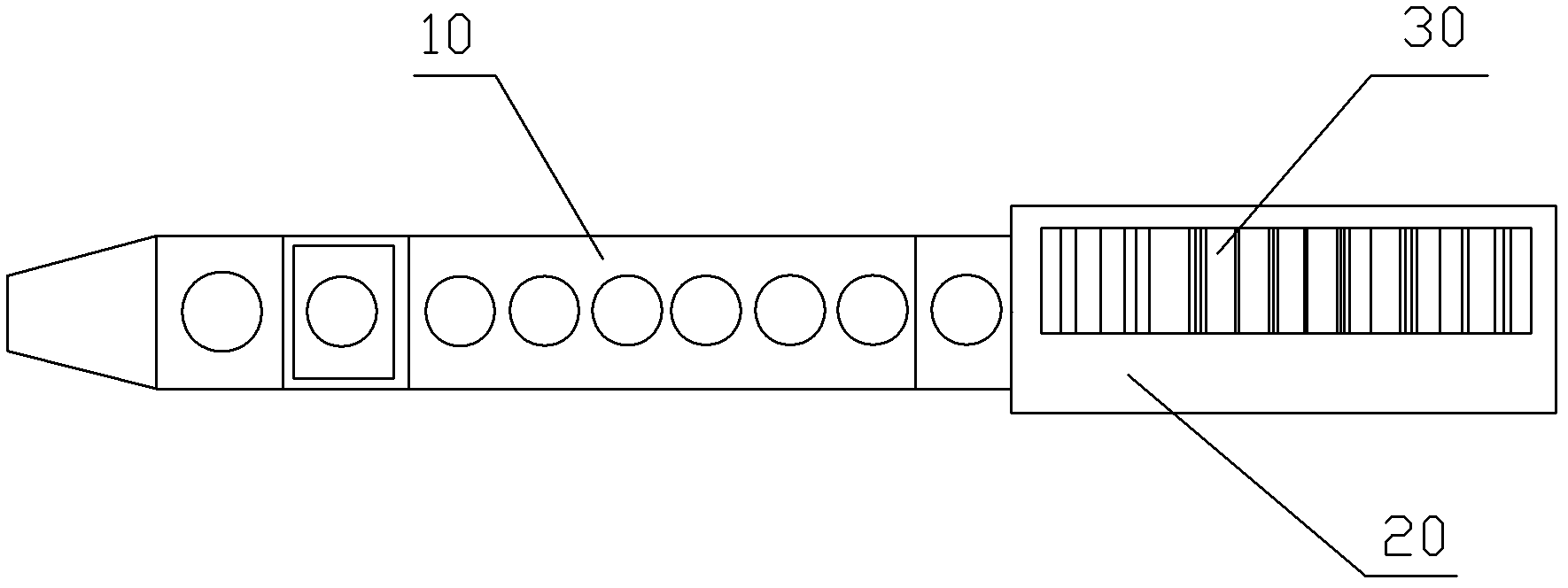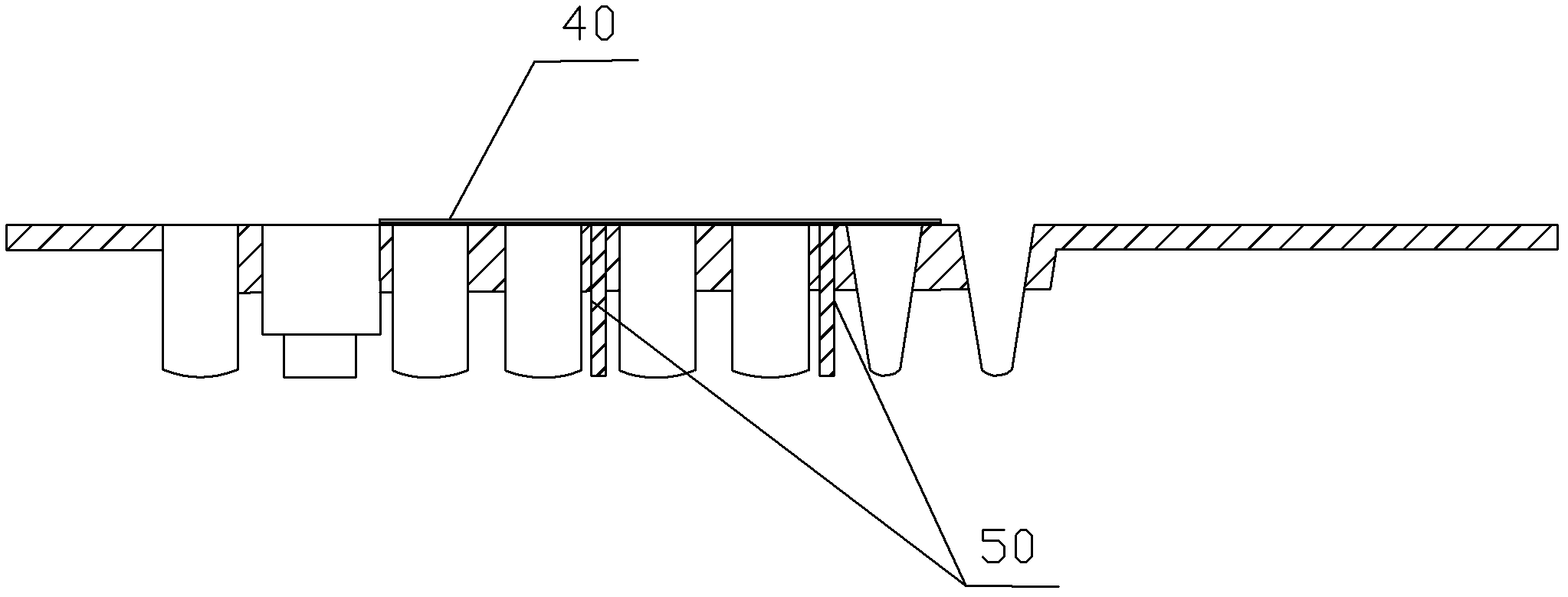Reagent device and method for detecting EB virus antibody
An EB virus and reagent technology, applied in the field of clinical immunology detection, can solve the problems of cumbersome and complicated operation process, complicated operation, and inability to carry out single-person detection.
- Summary
- Abstract
- Description
- Claims
- Application Information
AI Technical Summary
Problems solved by technology
Method used
Image
Examples
Embodiment 1
[0106] Embodiment one detects the reagent device one of Epstein-Barr virus antibody
[0107] Such as Figure 1-2 As shown, the reagent device for detecting Epstein-Barr virus antibody described in the application of the present invention is in the shape of a strip, including a base body 10 with eight holes and a handle 20 positioned at one end of the base body 10, and the sequence of the eight holes is arranged from near the handle 10 Starting from the end, there are sample wells 11, auxiliary agent wells 12, enzyme conjugate wells 13, substrate wells 14, stop solution wells 15, diluent wells 16, reaction wells 17 and dilution wells 18. The sample wells 11 contain There is a sample to be tested, the auxiliary agent hole 12 is used for adding auxiliary reagents when the detection needs (such as adding an adsorbent to the auxiliary agent hole when detecting IgM), the enzyme conjugate solution is added to the enzyme conjugate hole 13, and the substrate is added to the substrate h...
Embodiment 2
[0110] Embodiment two The reagent device two that detects Epstein-Barr virus antibody
[0111] Such as image 3 As shown, the reagent device for detecting Epstein-Barr virus antibody in this embodiment has the same basic structure as that of the reagent device in Example 1. The reagent device also includes several support columns 50, and the support columns 50 are located at the Under the substrate 10 in the above reagent device, there is more than one hole between adjacent supporting pillars 50. The function of the supporting pillars 50 is to enhance the mechanical strength and balance of the substrate.
Embodiment 3
[0112] Embodiment three The reagent device three that detects Epstein-Barr virus antibody
[0113] Such as Figure 4-6 As shown, it is a preferred embodiment of the reagent device for detecting Epstein-Barr virus antibody described in the application of the present invention. Its basic structure is the same as that of Embodiment 1 or Embodiment 2, the difference is that the reaction hole 17 is a detachable structure, and the reaction hole 17 Consists of an outer hole 171 and an inner hole 172, the bottom of the outer hole 171 is provided with a bottom hole 174, the inner hole 172 passes through the bottom hole 174 and closely fits with the bottom hole 174, and there is an anti-overflow gap between the outer hole 171 and the inner hole 172 Cavity 173, the function of the anti-overflow cavity 173 is that during the reaction, if the liquid overflows, it can stay in the cavity to prevent contamination of instruments and other reagent devices.
[0114] Further, the cooperating fix...
PUM
 Login to View More
Login to View More Abstract
Description
Claims
Application Information
 Login to View More
Login to View More - R&D
- Intellectual Property
- Life Sciences
- Materials
- Tech Scout
- Unparalleled Data Quality
- Higher Quality Content
- 60% Fewer Hallucinations
Browse by: Latest US Patents, China's latest patents, Technical Efficacy Thesaurus, Application Domain, Technology Topic, Popular Technical Reports.
© 2025 PatSnap. All rights reserved.Legal|Privacy policy|Modern Slavery Act Transparency Statement|Sitemap|About US| Contact US: help@patsnap.com



